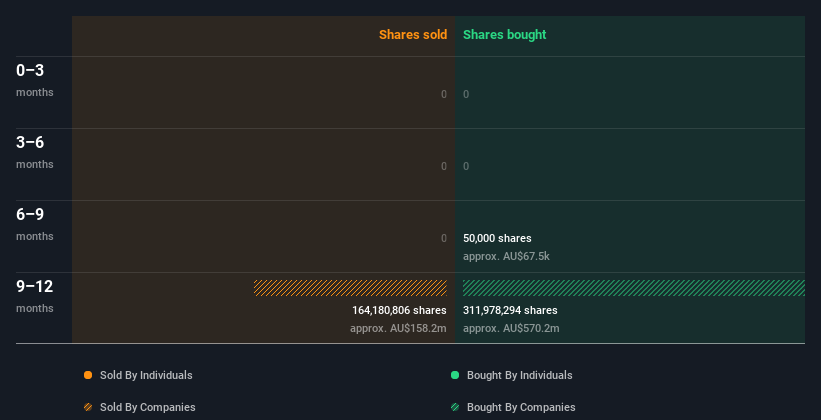How Much Are Vicinity Centres (ASX:VCX) Insiders Spending On Buying Shares?
We often see insiders buying up shares in companies that perform well over the long term. The flip side of that is that there are more than a few examples of insiders dumping stock prior to a period of weak performance. So we'll take a look at whether insiders have been buying or selling shares in Vicinity Centres (ASX:VCX).
What Is Insider Buying?
Most investors know that it is quite permissible for company leaders, such as directors of the board, to buy and sell stock in the company. However, such insiders must disclose their trading activities, and not trade on inside information.
Insider transactions are not the most important thing when it comes to long-term investing. But logic dictates you should pay some attention to whether insiders are buying or selling shares. As Peter Lynch said, 'insiders might sell their shares for any number of reasons, but they buy them for only one: they think the price will rise'.
Check out our latest analysis for Vicinity Centres
The Last 12 Months Of Insider Transactions At Vicinity Centres
The insider Aaron Gandel made the biggest insider purchase in the last 12 months. That single transaction was for AU$69k worth of shares at a price of AU$1.42 each. So it's clear an insider wanted to buy, at around the current price, which is AU$1.52. That means they have been optimistic about the company in the past, though they may have changed their mind. We do always like to see insider buying, but it is worth noting if those purchases were made at well below today's share price, as the discount to value may have narrowed with the rising price. Happily, the Vicinity Centres insiders decided to buy shares at close to current prices.
In the last twelve months Vicinity Centres insiders were buying shares, but not selling. You can see the insider transactions (by companies and individuals) over the last year depicted in the chart below. By clicking on the graph below, you can see the precise details of each insider transaction!
Vicinity Centres is not the only stock insiders are buying. So take a peek at this free list of growing companies with insider buying.
Does Vicinity Centres Boast High Insider Ownership?
Many investors like to check how much of a company is owned by insiders. I reckon it's a good sign if insiders own a significant number of shares in the company. Insiders own 0.3% of Vicinity Centres shares, worth about AU$24m. While this is a strong but not outstanding level of insider ownership, it's enough to indicate some alignment between management and smaller shareholders.
So What Does This Data Suggest About Vicinity Centres Insiders?
The fact that there have been no Vicinity Centres insider transactions recently certainly doesn't bother us. However, our analysis of transactions over the last year is heartening. Insiders own shares in Vicinity Centres and we see no evidence to suggest they are worried about the future. So these insider transactions can help us build a thesis about the stock, but it's also worthwhile knowing the risks facing this company. At Simply Wall St, we found 2 warning signs for Vicinity Centres that deserve your attention before buying any shares.
Of course, you might find a fantastic investment by looking elsewhere. So take a peek at this free list of interesting companies.
For the purposes of this article, insiders are those individuals who report their transactions to the relevant regulatory body. We currently account for open market transactions and private dispositions, but not derivative transactions.
This article by Simply Wall St is general in nature. It does not constitute a recommendation to buy or sell any stock, and does not take account of your objectives, or your financial situation. We aim to bring you long-term focused analysis driven by fundamental data. Note that our analysis may not factor in the latest price-sensitive company announcements or qualitative material. Simply Wall St has no position in any stocks mentioned.
Have feedback on this article? Concerned about the content? Get in touch with us directly. Alternatively, email editorial-team (at) simplywallst.com.

 Yahoo Finance
Yahoo Finance 
